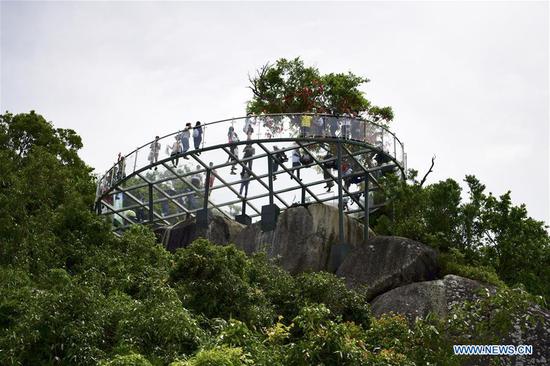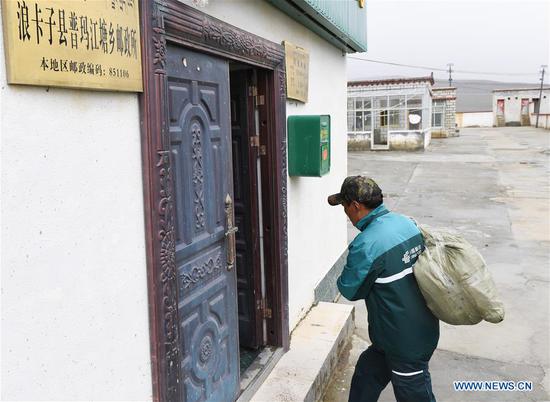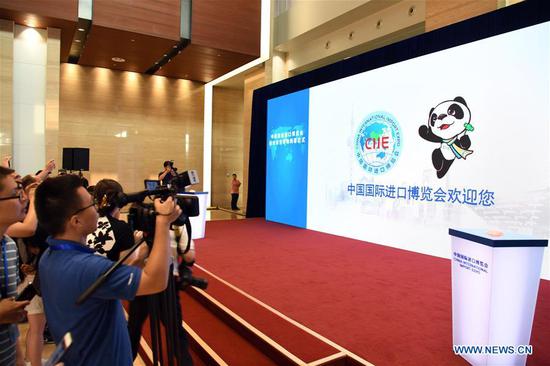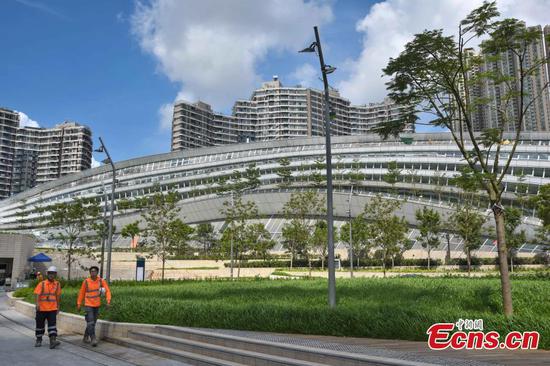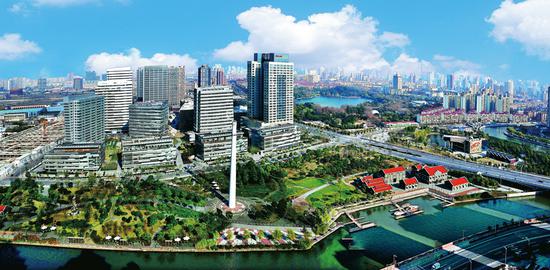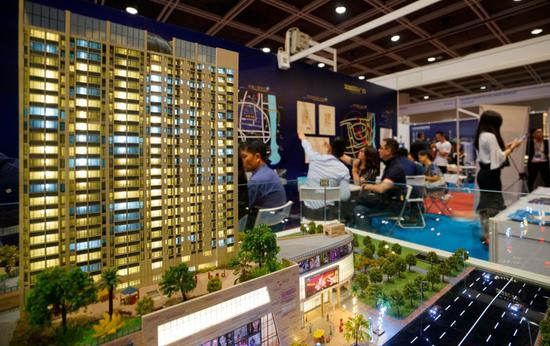
A model of a property in Zhongshan, Guangdong province, at an expo in Hong Kong, attracts attention of prospective investors in June. (Photo/China News Services)
China's major real estate developers are racing to open more rental apartments in the Guangdong-Hong Kong-Macao Greater Bay Area, but industry insiders warned of oversupply.
As the national development plan of the GBA is about to be unveiled soon, more companies and professionals are swarming the area.
It currently has a population of about 70 million, accounting for 5 percent of the nation's total, but it is estimated to reach 10 percent in the future.
Eyeing the growing market, traditional property developer Country Garden Holdings is determined to expand after opening 10 projects in GBA cities so far. In addition to first-tier cities, such as Guangzhou and Shenzhen, it also opened two projects of about 400 rooms in Dongguan in May, and a new one in Huizhou is in the pipeline.
Shenzhen-based China Vanke Co already operates about 50 projects in Guangzhou, Shenzhen, Foshan and Dongguan.
Yuan Jun, general manager of Vanke's leasing sector "Port Apartment," said they aim to provide high-quality residences for newcomers and young professionals with medium or low income, but they will also focus on family dwellings and high-end services apartments in the future.
Another Shenzhen-based developer Shum Yip Group Ltd owns 10 projects covering Shenzhen and Hong Kong, while China Merchant's Shekou Holdings runs a total area of 610,000 square meters of long-term rental houses in Shenzhen.
Longfor Group Holdings Ltd, headquartered in Chongqing, also slipped into the Bay market with 11 projects, according to 21st Century Business Herald.
The newspaper also reported that about 20 developers have entered the area, or plan to introduce their leasing business in the area.
These projects are mostly decorated in bright colors and fully furnished. Gym, kitchen and even gaming rooms are provided at communal areas for all tenants to share.
Tenant Han Kun, 26, said it is safer and more stable to rent an apartment from large property companies. He said he preferred their living environments, especially fun and recreation activities that the community organized.
Carlby Xie, director of Savills Southern China Research, said, "Long-term rental apartments have been developing quickly in the nation's major economic zones in the last two years, but the GBA area showed especially large demand due to its fast development."
The co-living projects targeting young people in the area provide them better living conditions at a fair price and it is also an opportunity to upgrade its overall leasing market, he said.
But Xie remained cautious on whether the market could absorb such large volume of supply in a short time, especially for some long-term projects with 10 to 20 years of contract.
Agreed Song Ding, director of the Tourism and Real Estate Industry Research Center, which is part of the China Development Institute, a Shenzhen-based think tank. He said at the core of the industry's large-scale development is a desire to strike a balance between supply and demand. But he said he believes the market is still nascent.










